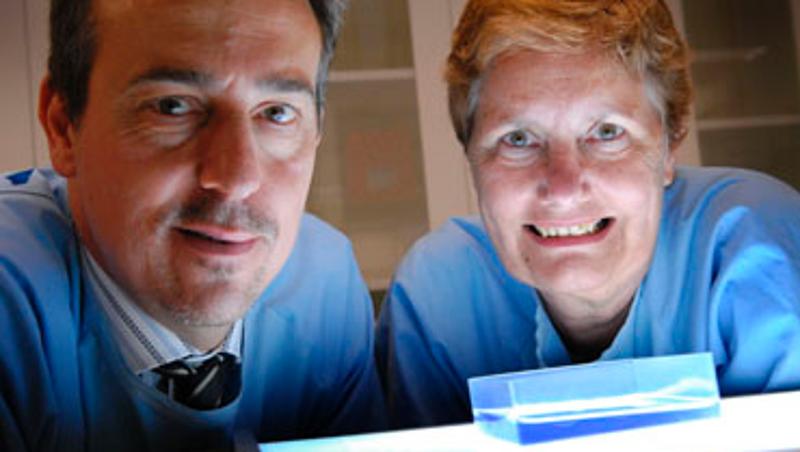
A QUT research project looking at ways to block chemo-resistant enzymes which also cause tumours to grow and spread, has been rewarded with a grant of $783,750 from the National Health and Medical Research Council.
Professor Judith Clements, of the Institute of Health and Biomedical Innovation (IHBI), will lead a research team in developing ways to understand and prevent the activity and effect on cells of these enzymes, called kallikrein proteases.
"We have been looking at four of 15 kallikrein proteases, which are enzymes shown to be associated with poor outcomes in ovarian cancer," Professor Clements said.
"When a combination of four of these enzymes - KLK4, KLK5, KLK6 and KLK7 - is introduced into ovarian cancer cells, they can make bigger tumours and increase tumour spread in the abdominal cavity.
"The other thing we are focussing on is why increased levels of KLK4 and KLK7 in ovarian cancer cells can cause resistance to chemotherapy.
"Something which is well known about ovarian cancer is that chemotherapy often doesn't work well but we don't know why, so this could be one of the reasons."
Professor Clements said the next step of the research would be carrying out tests to understand the mechanisms behind the increase in tumour growth and spread and in chemotherapy resistance.
"If we can understand the way this all occurs, then we can devise treatments to block the activity of these proteases," she said.
"We will be taking cancer cells into the lab and manipulating them to express KLK4, 5, 6 and 7 and test how they perform when we add the same kinds of chemotherapeutic agents used clinically."
Professor Clements said the enzymes being studied were common in women with ovarian cancer.
"Most of the 15 kallikrein proteases are expressed in ovarian cancer to varying degrees, and these are the four that we have found at this point to be the most damaging," she said.
"That is not to say the others would not be damaging but these are the four we will be focussing on in the next three years."
She said in the lab they would be using a three-dimensional or 3D jelly-like substance called a hydrogel, which places the cells in an environment which mimics that of the abdominal cavity better than the conventional 2D method, which involves placing cells in a single layer on plastic plates surrounded by liquid.
"We are using this new approach of embedding them in a novel 3D culture that was originally developed for tissue engineering applications, that better mimics the abdominal cavity and the environment the tumour cells grow in," said Professor Clements.
The research team also includes Professor Dietmar W. Hutmacher and Drs Simone Rizzi, Matthias Lutolf, Ying Dong and Daniela Loessner.
The hydrogel culture has been developed by Professor Hutmacher's team, which is developing different 3D technology platforms for research into a variety of cancers and other diseases which will also help the research into kallikrein proteases.
"A major outcome of tissue engineering research is that 3D cell culture offers a more realistic micro- and local-environment compared to 2D culture," he said.
"The molecular and functional properties of cells can be observed and manipulated to an extent that is not possible in animal experiments."
Media contact: Sharon Thompson, QUT media officer - 3138 4494 or sharon.thompson@qut.edu.au
**Hi-res pic available for media


